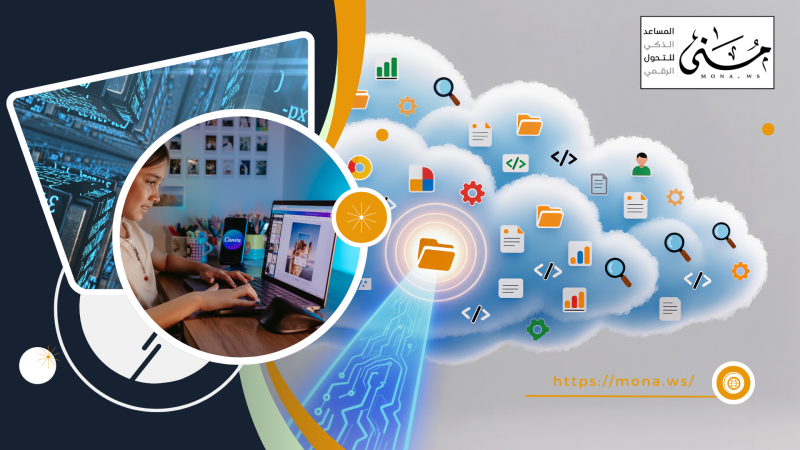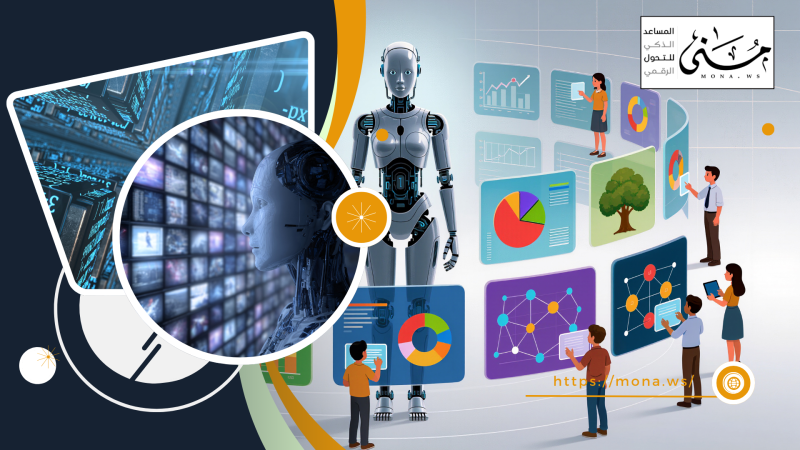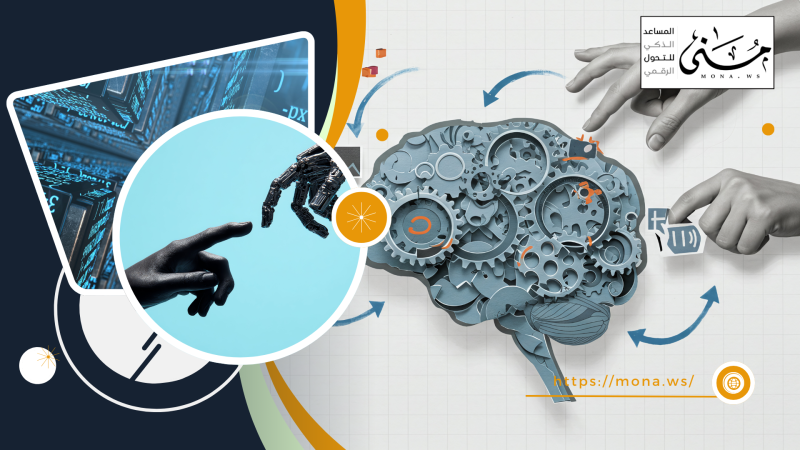Cloud computing features are a pivotal element of modern digital transformation, allowing businesses to run applications and manage data online without the need for expensive infrastructure.
In this article, we'll discuss in detail the characteristics of cloud computing, its most important benefits, and how to choose the best systems that organizations can rely on to manage their operations smoothly and securely.
What are the characteristics of cloud computing?
Cloud computing features are among the most important technical innovations that have contributed to transforming the way data is stored and digital systems are managed. This technology relies on advanced data centers that provide remote storage and application operation services, which helps companies get rid of the complexities of continuous maintenance of traditional servers. Among its most important features are:
Flexibility and scalability
One of the most important features of cloud computing is the ability to easily scale according to business needs. Companies can increase or decrease storage and processing capacity based on operational requirements.
Economic cost
Cloud computing features help businesses reduce operational costs by providing pay-as-you-go solutions, eliminating the need for massive investments in hardware and infrastructure.
Access from anywhere
Cloud computing features allow users to access data and applications from anywhere in the world via the Internet, facilitating collaboration between different teams within organizations.
Cloud Computing vs. Traditional Computing: Which is Better?
|
The worker |
Cloud computing |
Traditional computing |
|
Cost |
It is based on pay-as-you-go, which makes it more economical. |
Requires large investments in infrastructure and regular maintenance. |
|
Flexibility and expansion |
Resources can be easily expanded as needed. |
Limited and requires purchasing new hardware when needed to expand. |
|
Security and Privacy |
It depends on the service provider and provides high levels of security and encryption. |
You need specialized technical teams to ensure effective data protection. |
|
accessibility |
Data and applications can be accessed from anywhere via the Internet. |
They are limited to an internal network and are often less flexible. |
When to choose cloud computing?
If you run a startup or medium-sized business, cloud computing features provide you with a flexible operating environment at a lower cost.
But in some cases where extreme privacy and security are required, such as banks or government institutions, traditional systems may be more secure.
Types of Cloud Computing
Cloud computing features are based on different models, each of which suits specific business needs:
Public cloud (Public Cloud
The cloud computing features in this model provide services that are available to everyone over the Internet, such as:AWS and Google Cloud.
Private cloud (Private Cloud
It relies on a dedicated infrastructure for a single organization, making it more secure and controlled, but it can be expensive.
Hybrid cloud (Hybrid Cloud)
It combines the cloud computing features of public and private clouds, providing a balance between security and flexibility.
Multi-media cloud (Multi-Cloud
Allows reliance on more than one cloud provider at the same time to ensure flexibility and reduce operational risks.
Challenges and limitations of cloud computing
Although cloud computing offers significant advantages, there are some challenges to be aware of:
Security and privacy concerns
Data protection depends on the service provider, so organizations need to ensure they use robust systems that protect against cyber attacks.
Internet dependence
Cloud computing features require strong and stable connectivity to ensure smooth operation of services and applications.
unexpected costs
Some companies may be surprised by higher costs as they increase cloud resource consumption, so they should choose solutions that offer price transparency like DocSuite.
Best cloud-based systems
To make the most of cloud computing, you can rely on advanced systems that provide reliable performance, such as:
Doc SweetAn integrated system for managing documents and administrative communications, providing a secure and easy-to-use cloud environment.
Google CloudA platform that provides data analysis and machine learning services via the cloud.
Microsoft AzureProvides advanced solutions for application development and cloud infrastructure management.
AWSOne of the most powerful platforms offering a wide range of cloud computing services.
With the continuous development of technology, the characteristics of cloud computing are expected to become more advanced, especially in the fields of artificial intelligence, data analysis, and the Internet of Things, and this throughCombining artificial intelligence with cloud computing will enable organizations to leverage intelligent analytics and improve decision-making based on cloud data.
Cloud companies are expected to offer more robust solutions to combat cyber threats, making cloud computing more secure.
Cloud computing features are the cornerstone of enterprise digital transformation, providing flexible and efficient solutions that enable companies to manage their operations with high efficiency.
With the growing need for security and operational sustainability, choosing the right systems, such as DocSuite, ensures maximum benefit from this technology. With future developments, computing features will continue to play a key role in driving innovation and improving digital work environments.
Top use cases for cloud computing in various sectors
Cloud computing features are a pivotal factor in various sectors, helping to improve efficiency and reduce operational costs. Some of the most prominent uses include:
Business and corporate sector
- Facilitate access to data and manage teams remotely.
- Reduce costs associated with purchasing physical servers.
- Using cloud computing to intelligently store and analyze data.
Education sector
- Enabling e-learning via cloud computing platforms.
- Providing educational resources available anytime, anywhere.
- Enhancing collaboration tools between students and teachers.
Healthcare sector
- Improve electronic medical record storage and analysis.
- Facilitating access to medical data between hospitals and clinics.
- Supporting artificial intelligence in disease diagnosis and treatment management.
How to choose the best cloud service provider for your company?
With the diversity of cloud computing providers, it's important to choose the most appropriate system based on the computing features that meet your company's needs. You can rely on:
Security and encryption
Choose a provider that offers advanced encryption technologies to ensure data protection.
Cost and flexibility
Choose a service based on a pay-as-you-go model to save costs.
Support advanced technologies
Ensure that the platform supports artificial intelligence, data analytics, and integration technologies with other systems.
Availability of technical support
It is preferable to rely on a provider that provides technical support available 24/7.
The impact of cloud computing on environmental sustainability
Computing features help reduce the environmental impact of companies, as they help in:
Reduce energy consumption
- Replacing traditional data centers with more efficient cloud solutions.
- Using advanced cooling technologies to reduce electricity consumption.
Reducing electronic waste
- Reducing the need to constantly purchase new devices.
- Reduce the disposal of old servers and equipment.
Improving the sustainability of operational processes
- Support remote work and reduce the need for commuting, thus reducing carbon emissions.
- Using artificial intelligence algorithms to manage energy efficiently.
Computing features represent the cornerstone of enterprise digital transformation, providing flexible and effective solutions that enable companies to manage their operations efficiently. With the growing need for security and operational sustainability, choosing the right systems ensures maximum benefit from this technology. With future developments, cloud computing features will continue to play a key role in driving innovation and improving digital work environments.
 خصائص الحوسبة السحابية حجر الأساس في التحول الرقمي للمؤسسات
خصائص الحوسبة السحابية حجر الأساس في التحول الرقمي للمؤسسات






Comments
Add New Comment